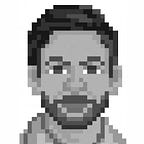Growing Your Team Starts with Knowing Your Weaknesses as a Founder
Startup Hiring Practices, Inspired by Peter Drucker’s Managing Oneself
One of the personal challenges I’ve faced in growing Astro HQ has been making the mental shift from being a developer to a business person. Other technical founders often bring on a “business person” to lead the day-to-day business operations. But for Astro HQ this was a role that I wanted to challenge myself to grow into.
To help myself with that growth, I’ve been picking up business and management books. One book which has stuck with me is Managing Oneself by the great Peter Drucker. Here are a few thoughts inspired by Managing Oneself and how I’m applying them to my own company.
Acknowledge the downside of every strength
Ask yourself — what do people compliment you on? What do others say you are good at? Those are your strengths. This requires a level of self-awareness and a willingness to accept your weaknesses.
Typically, your greatest weakness is also your greatest strength. For example, I’m good at seeing the big picture, the forest for the trees. But that also means I can miss the details. On the other hand, someone who is great with details will also get lost in them and fail to see the larger goal.
I’m also good at starting new things, but I’m terrible at following up. I’ll get something like a new blog started, but I’m not disciplined at making sure posts get written on a regular basis. I’m good at getting a new product shipped, but I’m not so good at making sure bug fixes ship on a regular basis. I’m good at building new things; I’m bad at operations.
Focus on refining your strengths — not improving your weaknesses
Conventional wisdom says that you should be a well-rounded person. If you’re weak in some areas, you should focus on improving those soft spots.
But Drucker doesn’t like conventional wisdom. He argues that if you focus on improving your weaknesses, even with lots of effort you can only improve to be average or competent in that area. But instead, if you focus on understanding your unique strengths and refining them, you can become a superstar.
Intuitively this makes sense: focus on what you have a natural inclination for and you can go well beyond average. If you focus on improving weak areas, you’ll have a lot of “debt” to pay off before you’ll even “break even” with average level abilities.
Choose a cofounder who balances you out
Once you know your strengths, it’s time to double down and work on improving them. But what do you do about your weaknesses? Drucker doesn’t address this directly, but I’ve got my own take: Surround yourself with people that round out your skill set.
For example, no matter how many to-do lists, reminders and schedules I set, I will never be exceptional at details and operations. That’s where my cofounder Giovanni and I really balance each other out. While I’m stuck looking at the big picture, Giovanni easily dives into the details.
One way this plays out is when we’re scheduling big project timelines. I’m usually too optimistic and will estimate a six month timeline, but Giovanni will account for every detail and estimate the project will take a year. More often than not, it ends up taking nine months, somewhere in between our estimates. Giovanni’s perspective helps me have a more realistic expectation when we’re making business decisions.
Hire to offset your weaknesses
Most founders make the mistake of hiring people just like them. But when it comes to growing your team, you should continue to be aware of how you are balancing your strengths.
Our very first hire, Malyse, is another example of how I offset my weaknesses. Malyse is great at spotting the details that I would never pick up on. She’s the perfect person to do our QA testing because she can dive deep into a software issue and narrow down its source.
As Giovanni and I continued to add more personalities to our team, we also realized that we shared weaknesses as co-founders. We’ve both always disliked structure and tend to thrive in chaos and ambiguity. But our next two employees, Adam and Savannah, craved a sense of structure that we hadn’t established yet. They pushed us to build processes around how we worked as a team, which has helped us to run more smoothly and efficiently as we’ve continued to grow.
Build a team that’s better together
Working with people that excel where you are weak creates a symbiotic relationship. You compensate for each other so you can focus on refining your strengths. As cheesy as it sounds, it’s like complementary colors — more powerful together than apart. So when you think about hiring, pay special attention to how that person will round out your team and play off of your weaknesses. You’ll know you’ve achieved this when everyone on your team is better than you in at least one area.
Originally published at Astro HQ.
